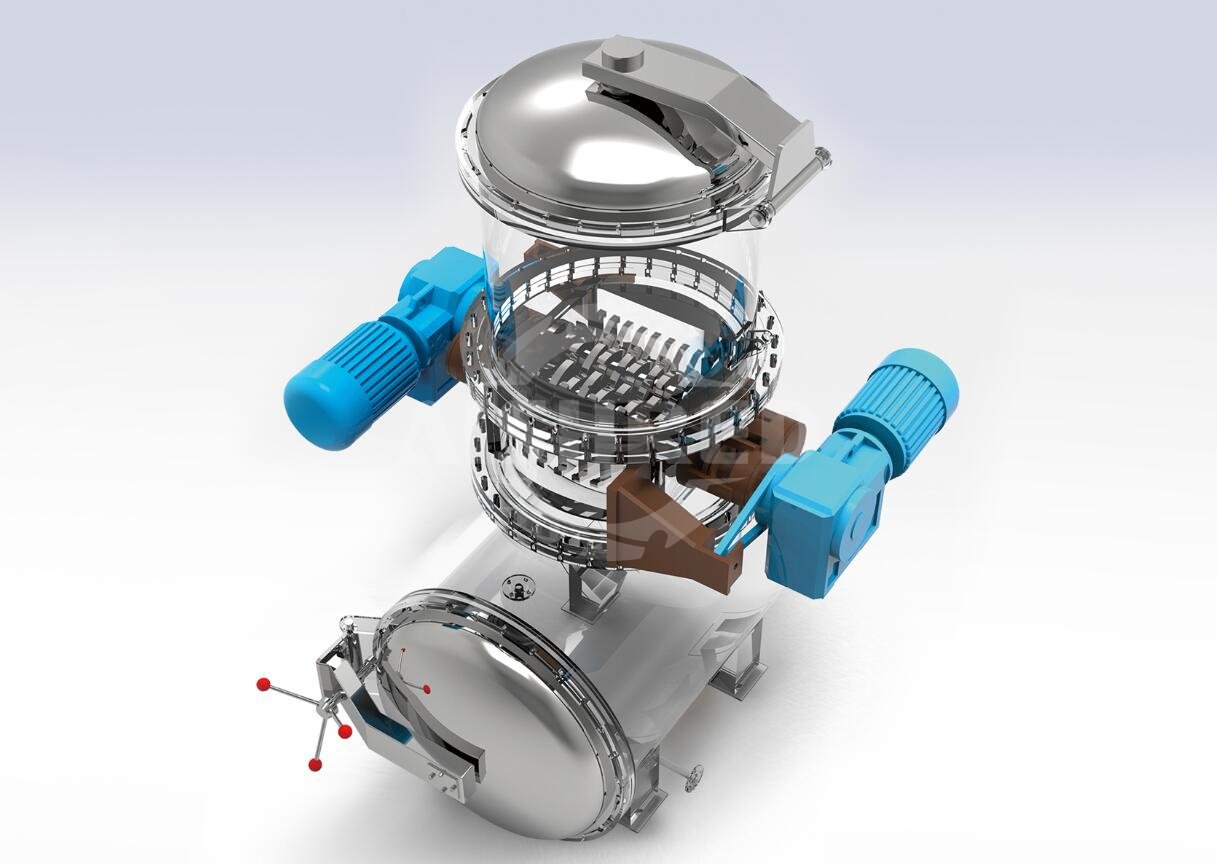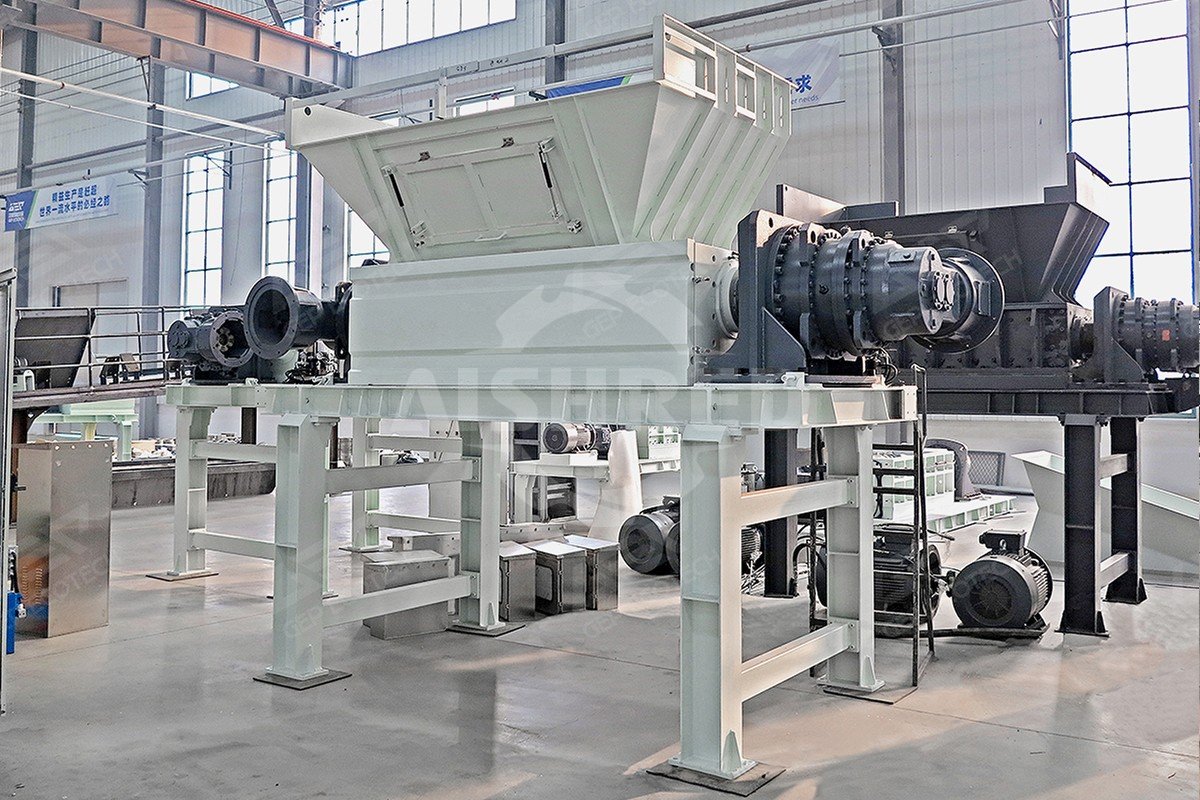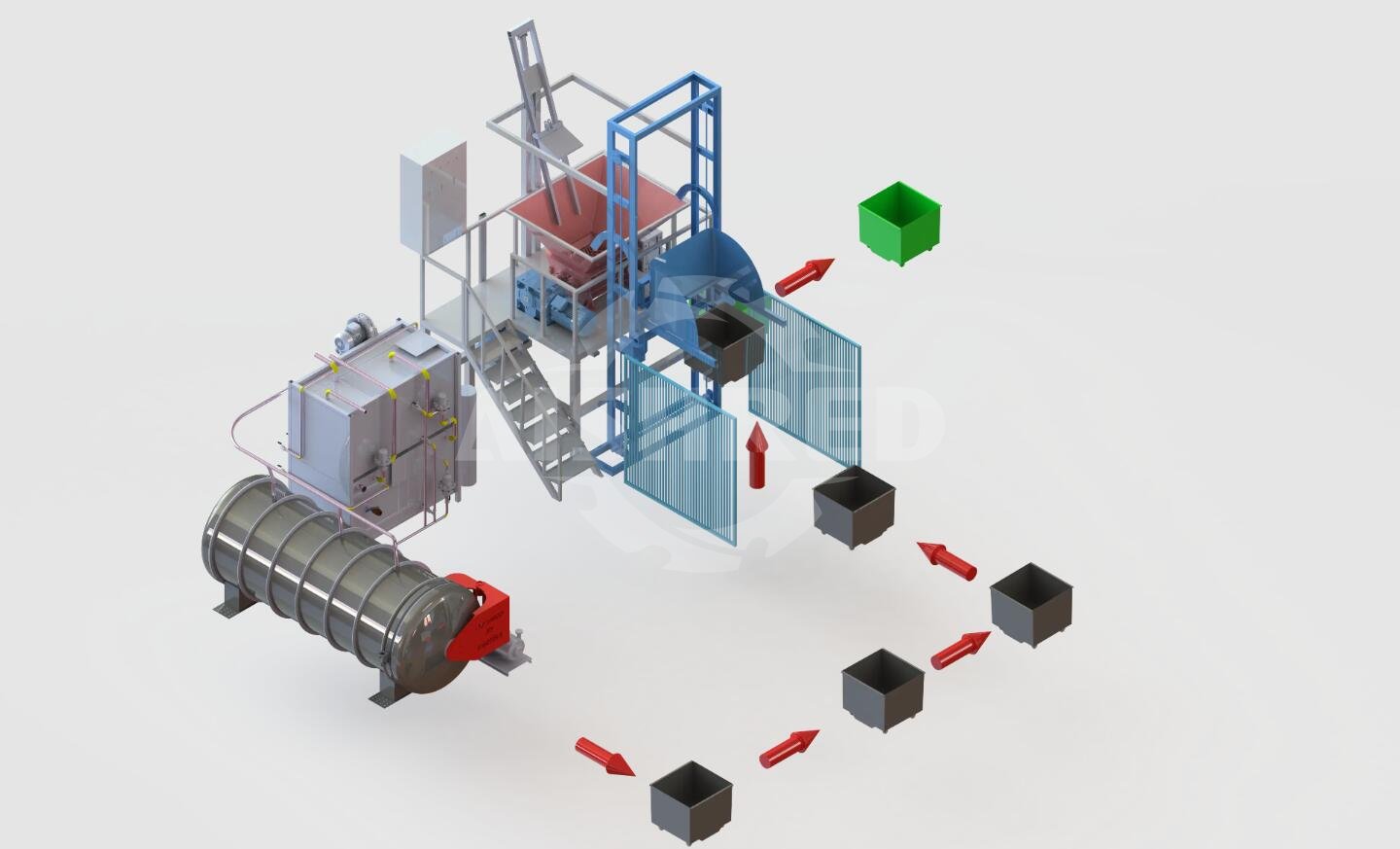Medical waste is a type of solid waste that must be properly managed because it contains potentially infectious microorganisms and has specific characteristics. The World Health Organization, as well as various countries and regions, have established strict disposal guidelines and regulations for medical waste based on its characteristics. The biggest difference between medical waste and municipal solid waste is that medical waste must undergo microbial inactivation treatment. High-temperature steam sterilization is the most commonly used method of treatment, with other options including chemical disinfection.
To ensure thorough disinfection of medical waste, preprocessing is highly recommended. Shredding the waste facilitates the efficiency of subsequent processing. In China, medical waste can only be handled by qualified treatment facilities, which prevents medical institutions from managing medical waste on their own. However, in other areas, some small medical institutions may seek flexible disposal equipment, among which integrated autoclave with shredders are available. These small medical waste shredders typically occupy less than one square meter of space and cost less than $5,000.

Although these machines are flexible and affordable, they are evidently not suitable for medical waste disposal centers as they cannot meet the requirements of continuous high-intensity operation and their processing capacity does not reach the standard of several tons per hour.
In medical waste disposal centers, medical waste is shredded and then transported to industrial autoclaves for sterilization, after which it can be processed according to the procedures for municipal solid waste. The dual-shaft shredder is a widely chosen option for many disposal centers, renowned for its excellent processing capacity and stable performance.

Disposal centers often customize ordinary dual-shaft shredders to meet their specific needs. One of the most common modifications is integrating lifting hoppers or bucket conveyors, depending on the feeding method. Many shredders at disposal centers are equipped with tracks underneath to facilitate the automatic transport of shredded materials to the autoclave. Additionally, some materials may require further shredding after sterilization in the autoclave to meet certain specific needs. Secondary dual-shaft shredders or single-shaft shredders can serve this purpose, and magnetic separators can be used to separate metals.

GEP ECOTECH provides comprehensive solutions for hazardous waste management, whether it's industrial waste, medical waste, radioactive waste, or other hazardous waste. Our preprocessing systems consistently ensure safe and efficient handling. Our CSS and SMP systems focus on quickly and efficiently disposing of various types of hazardous waste and designing unique solutions according to customer needs.

